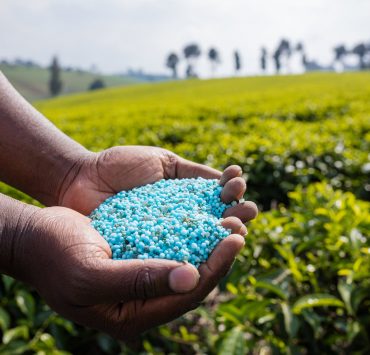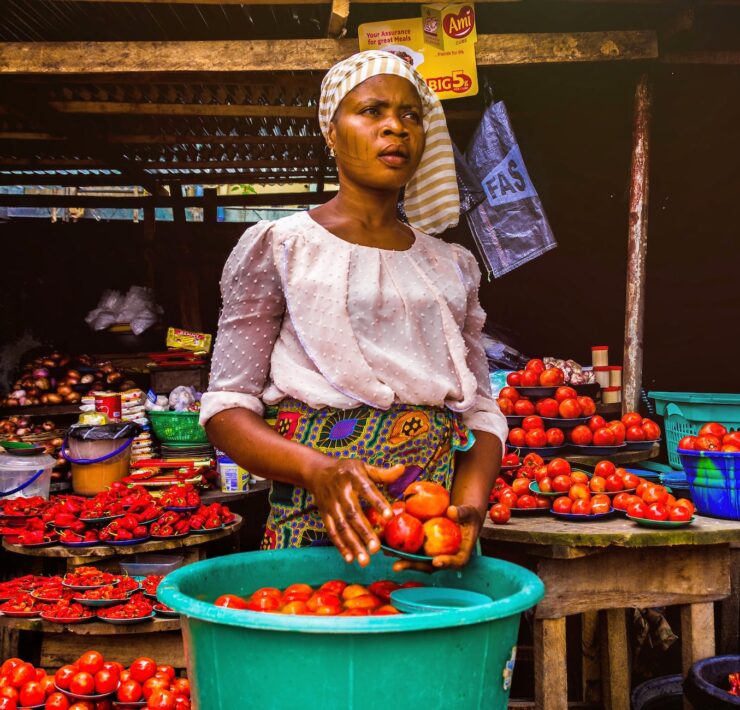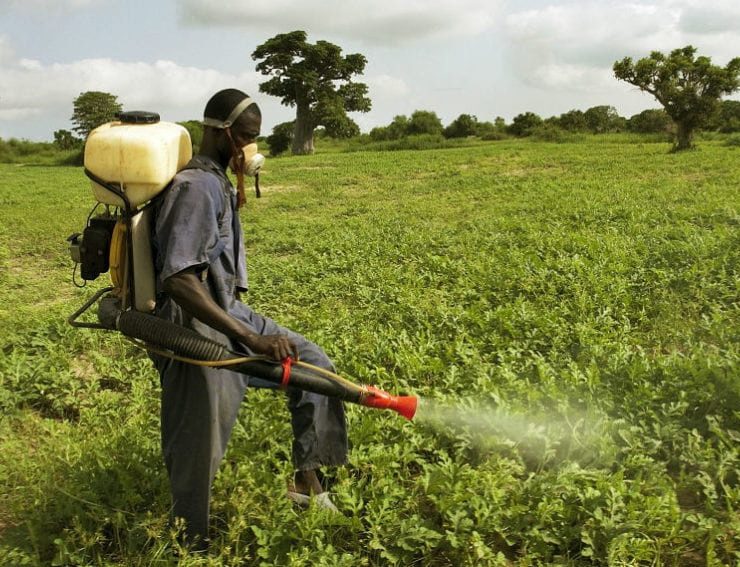The urgency to localise food supplies
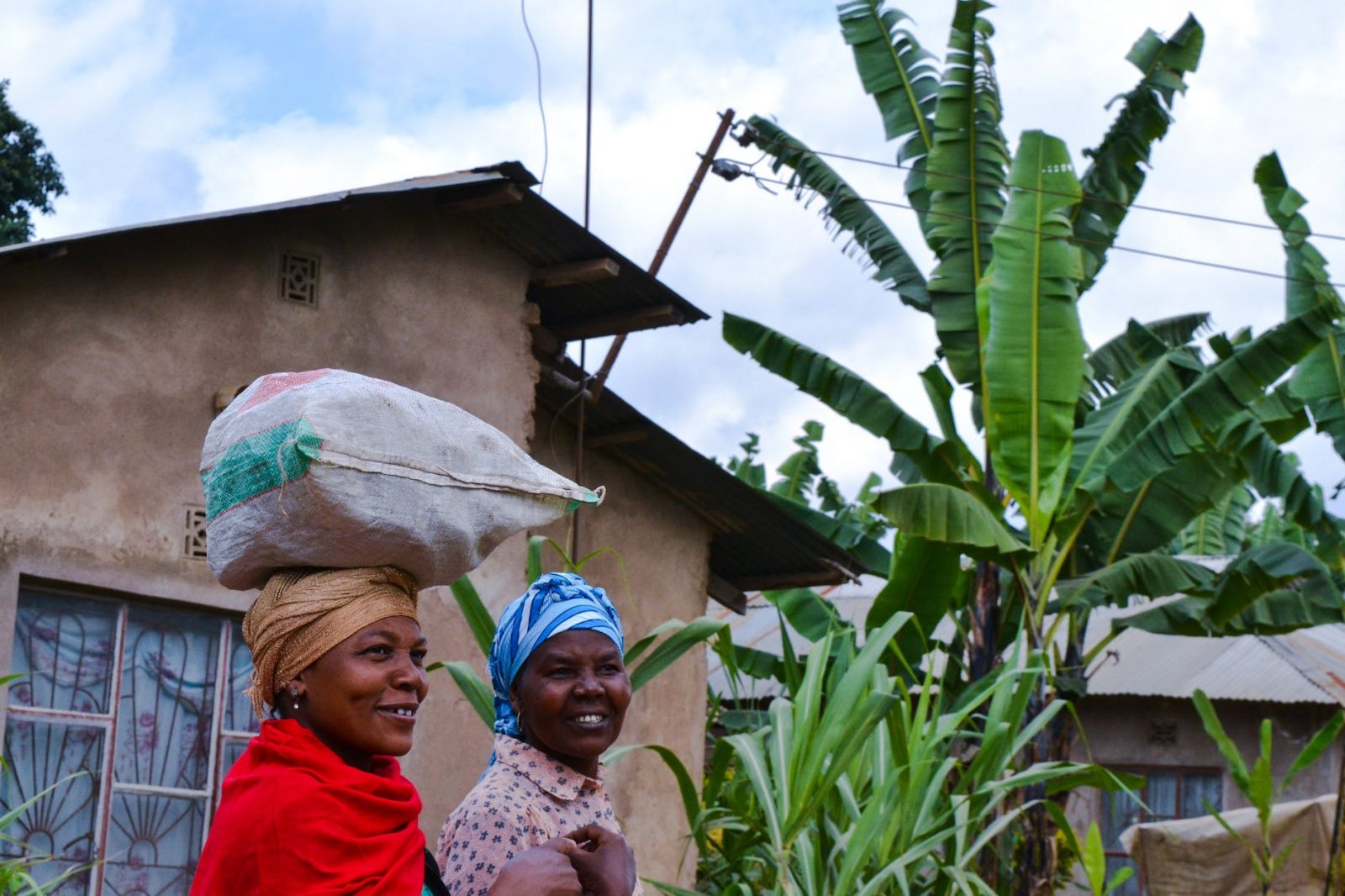
GRAIN is a small international non-profit organisation that works to…
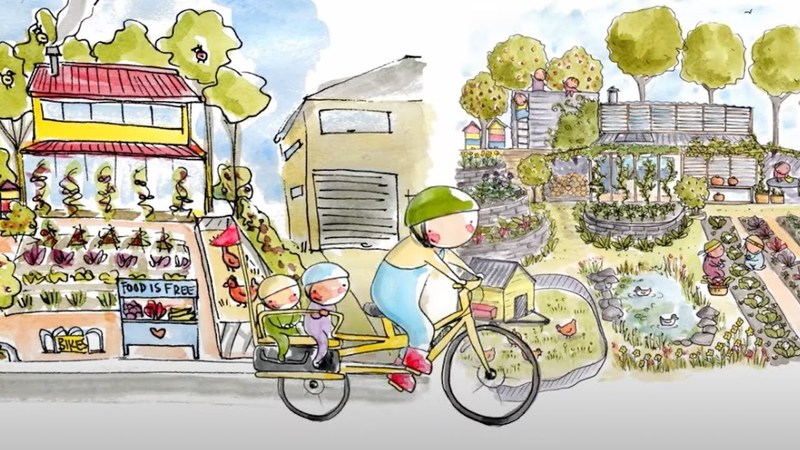
Supermarket Asia bulletin #27 – August 2022
Editorial
In June, many farmers’ groups, communities, and consumer cooperatives around the world celebrated World Localisation Day. First launched in 2020 by Local Futures, the campaign aims to scale back food and economic structures to the level of communities–allowing regions and locales to maintain a steady supply of food for themselves while neoliberal economic forces are kept out.
Localisation movements provide a lot of inspiration about how to reshape our food systems. During one of the events celebrating World Localisation Day, PV Satheesh from Deccan Development Society in Andhra Pradesh, India shared about how communities they work with have created their own seed banks, millet processing units, local food outlets and restaurants, and allowed women to take control of the market by pushing the state government to redirect public subsidies towards their indigenous, climate-adapted local crops.
Another inspiring example is the Bhoomi Santhe market, a farmers’ market held twice a month at Bhoomi Campus in Bangalore. This market encourages a deepening of relationships not only between customers and producers, but also within the local community. The market offers much more than fresh vegetables, fruits and other local produce, such as pulses, rice, millets, spices, honey or ghee. It is also a space to explore alternatives beyond the dominant development paradigm by organising workshops for children and adults, talks, discussions, film reviews and performances.
The current food crisis, a result of a wider mix of problems from the Covid-19 pandemic and the war in Ukraine to the climate crisis and speculation on financial markets, makes it clear that dependence on global supply chains is risky, especially when it comes to basic needs such as food. In this context, the localization of food systems is a critical way to address some of the most pressing global problems. Not in the sense of nationalism, borders or guarded stockpiles and isolation, but rethinking how we organise trade, and making it subservient to the needs of local food systems. It also means putting in place urgently needed measures to ensure access to land, especially for youth and women.
The localising of food systems offers an important way out of the current corporate domination. For all the talk about corporate responsibility and accountability, what we continue to get are false solutions, greenwashing and ongoing destruction while their profits keep rising.
Head banner image: World Localisation Day, Local Future
Across the region
“Tin Yeah” – A mutual help, local products retail initiative by Hong Kong youth
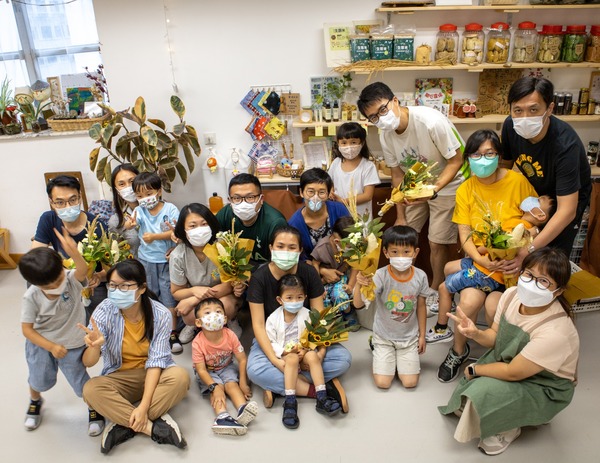
Hong Kong agriculture is generally regarded as a declining sector, with a vegetable self-sufficiency rate of about 1.7%. Hong Kong abandoned its food subsistence approach in the 1980s and has since relied on mainland China for vegetables and meat. Consequently, a lot more government resources are required to tackle the emerging food safety problems resulting from imported food, which has also undermined production by local farmers and their livelihoods.
At the same time, land and housing development are major causes of land grabbing in Hong Kong. Land policies favour land sales and commercial development instead of agriculture and, as a result, over the last three decades, the area of farmland in Hong Kong has dramatically decreased from 13,000 hectares to 5,100 hectares.
However, with the recent Covid-19 pandemic and the changing social atmosphere, there is increasing support for growing – and buying – locally as a way to advance food sovereignty in Hong Kong. People are thinking more about the importance of restoring the local vegetable supply after hundreds of cross-border drivers were forced to stay for Covid quarantine in February 2022, causing a disruption in the vegetable supply from mainland China and soaring vegetable prices. The public realised that the industrialised supply chain is extremely fragile under crisis.
Meanwhile, there is a trend among young people to choose to become farmers or to start small, independent retail stores. This helps foster new forms of collaboration and the development of multifunctional platforms for farmers and other food producers, retailers and consumers to interact, mutually support each other, and sustain the food web. Among these, “Tin Yeah” (meaning ‘from the field’ in Chinese), a small retail store established in 2017, collects and sells locally grown fresh and processed foods from individual farmers and food processors. The founders, Mak Ho-ying and Nicole Lam, are two young women activists who work to localise the community-supported agriculture (CSA) concepts in Hong Kong and promote local heirloom varieties and rural living values to their members.
They were inspired by a campaign against the power of developers that reached its peak in 2014. The campaign’s goal was to live independently from developers who are intensifying their control over people’s lives by setting up cross-sector businesses. One example is how developers provide supermarket chains with monopolies within their housing projects and thus transform people’s lifestyles away from the local culture. The government has catalysed this monopolistic trend by privatising the communal spaces used by wet markets and for shopping areas that provide low costs food and cheap products that support community livelihoods, and the elderly in particular.
Mak decided to set up Tin Yeah as an independent retail store to assure the public when opting for a nonmainstream way of living. Tin Yeah provides the means for sustainable living practices if one wants to live outside the corporate control of the food supply. “The meaning of being an independent store is reflected from our ideology and operations”, Mak explains.
In a highly modernised city, food sovereignty cannot just rely on escalating the level of local production. It must rebuild a collaborative food network so that farmers, consumers, food processors, activists and practitioners can communicate and connect with each other. Mak and Nicole soon realised their retail shop is more than merely a place for transactions but also a space for food & agriculture education and relationship building. The following year, they moved to a bigger store, though the location is less accessible than the original one. The new store provides space for farmers and consumers’ meetings, cooking workshops and cultural food talks. Such activities have led to community building among local food supporters. A small Hong Kong agricultural library was established at the store corner to support learning for both farmers and consumers. “Everyone has to learn this concept—crops are living beings, not commodities”, says Mak.
Independent food retail stores have largely enhanced the stability of the city’s food supply. For example, winter is a season in which farmers often face the problem of selling the excessive seasonal harvest. In January 2022, Tin Yeah organised a pop-up sales campaign called “seasonal vegetables and fish party” to help farmers sell their excess seasonal harvest, particularly those with perishable crops. Some consumers volunteered to set up the temporary distribution system. The event helped to sell over 1,000 kg of local fresh vegetables from 15 farmers within two days, and 90 per cent of the buyers were new consumers. What’s more, volunteers also connected with local small food processors to handle their excess Chinese radish, which is transformed to make radish cake or pickles. Any excessive quantity of processed radish would then be distributed among other independent retail stores from the local network.
The disruption of the vegetable supply from mainland China fostered the demand for locally grown vegetables. Members of Tin Yeah increased their sales by 20 per cent during Covid and received ten times the normal number of phone inquiries about buying local vegetables. Nevertheless, independent retail stores are now facing more challenges than usual. The popularisation of online sales platforms transformed our consumption patterns and destroyed the relationship between consumers and retailers. In addition, short-term “buy local” actions motivated by crises are usually not long-lasting.
Mak and Nicole believe in the power of communications. They often spend over half an hour talking with new members on phone to get a deeper understanding of their thoughts and family backgrounds. They believe a real food sovereignty movement should be rooted in community values and not only in reaction to the crisis.
Article by GRAIN, based on interview with Mak Ho-Ying, Tin Yeah’s co-founder.
For further information check out their Facebook: tinyeahtinyeah
Image: Tin Yeah consumers
_______________________
Street vendors joining the fight for food sovereignty.
Conversation with Nash Tysmans, StreetNet International’s Organiser for Asia

GRAIN: How do these current multiple crises—climate, food, health, economic—affect street vendors in Asia and other parts of the world?
Nash Tysman (NT): This is a huge question and I’ll start answering it by first explaining that street vendors live their lives precariously to begin with. Most are categorized as self-employed and make only enough money to feed and house their families. They do not benefit from having an employee-employer relationship with which they can access benefits or enjoy labour rights. They work very hard but are not recognized as workers. As such, the impact that crises have on them is immense. Since they are not recognized as workers, nor are they seen as the poorest in society, they do not have access to social protection from risks like unemployment, maternity coverage, healthcare, etc. They are always one sickness away from poverty. When the pandemic struck in 2020, it revealed the conditions that street vendors were facing. Many had lost jobs and did not have access to safe work spaces. They put themselves at risk of being exposed to Covid-19 just to make ends meet. Food vendors also provided essential services—they sold food to communities and health workers—at great risk, without any form of support. In some areas where we work like Bangladesh, street vendors are already experiencing the climate emergency first hand. They are displaced and forced to migrate. Some experience loss of livelihood because crops no longer grow like they used to. There are also more climate-related hazards like floods, drought, heavy rainfall, etc. that impact their lives.
It’s difficult to paint a brighter picture while discussing these conditions because street vendors are facing a lot of challenges. However, what we’ve learned from the experience of the pandemic is that there is a lot of willingness and resourcefulness among our members that led them to find ways to help each other. Here we witnessed the power street vendors have to organise and advocate for themselves.
GRAIN: What is the most pressing issue that street vendors are currently facing? What is needed to tackle this issue?
NT: Linked to what was said above, the most pressing issue is livelihood. Access/permission to work and having a safe environment for them to work is important. They should also be free from abuse by authorities.
Tackling this involves our focus on organising, education, and advocacy. In StreetNet, we work on increasing our member’s capacity to negotiate for themselves with their counterparts among the authorities. We also know that street vendors must be supported in organising around issues that directly affect them. We also look for more ways to build solidarity like arranging for exchange visits among street vendor leaders or designing courses for them that encourage them to develop their own forms of mutual aid.
GRAIN: As an alliance of street vendors, why is it important for them now to join other movements to achieve food security/sovereignty?
NT: Our work is primarily in the labour sector and while we focus a lot on making sure that street vendors’ labour rights are protected we also see, from the testimonies of our members, that the issues they face are not only tied to labour but also to other sectors. The complexity of the problems means that we have to also work with other organisations or at least be able to share with them the experiences of our members so that they can also show us other ways of thinking about possible solutions.
Building solidarity matters in addressing the issues that street vendors face. For food security/sovereignty in particular, I’m reminded that we all need access to affordable, good quality food in order to live and so it’s in all of our interests to fight to make this our reality.
GRAIN: You mention that one of StreetNet’s focus right now is working with women in the agri-food sector. Why is it particularly important to work with women in this sector as part of your broader work?
NT: We have found that most of our members and generally a majority of informal economy workers are women. This means that we should engage with them more, especially in encouraging them to occupy leadership positions. Another lesson from the pandemic is the disproportionate effect of the crisis on women. We saw how women workers not only engaged in work as street vendors but also as care workers in their families. This means that addressing street vendors’ issues also involves a gendered response.
Image: Nash Tysman
From the news
Delivery Hero Riders United – Solidarity with strike at Foodpanda Myanmar!
The past few weeks and months have seen several strikes and protests by delivery workers of Foodpanda, an online food and grocery delivery platform owned by Delivery Hero, a German multinational online food-delivery service that operates in more than 50 countries. Protests are ongoing in Myanmar, Hong Kong, Pakistan, the Philippines, Turkey, United Arab Emirates, and Greece.
The protest was initiated by workers of Foodpanda Myanmar, who are demanding changes to the software used to control delivery riders, a fairer wage and better working conditions, and protections and compensation for accidents or injuries sustained during work hours. Since the country’s management didn’t react to their demands, the riders decided to go on strike and build up international solidarity with other Foodpanda workers worldwide.
‘Food miles’ have larger climate impact than thought, study suggests
Carbon Brief
A new research, published in the journal Nature, found that global “food miles” emissions are higher than previously thought – accounting for nearly one-fifth of total food-system emissions. “Food-miles emissions are driven by the affluent world,” the study says. It finds that while “high income nations” represent only about 12.5% of the world’s population, they are responsible for 52% of international food miles and 46% of the associated emissions.
The report also reflect on the pros and cons of buying local food – an often-touted solution for reducing food emissions. The study showed that ending all international food transport would cut food-miles emissions by 9%.
Cost of living: ‘Blood, sweat’ for a Seoul food delivery driver
Steven Borowiec, Al Jazeera
In recent years a confluence of factors has driven explosive growth in South Korea’s food delivery market. According to government data, the food delivery market was worth 25.6 trillion won ($19bn) in 2021, up from 17.3 trillion won ($13bn) the previous year and 9.7 trillion won ($7bn) in 2019. But as fuel prices rise and pay rates stay the same, a driver and labour rights leader is fighting increasing precarity. Park Jung-hoon, a food delivery driver who also operates an association of fellow food couriers in the South Korean capital, says rising fuel prices mean workers are taking home less money.
Under South Korean law, delivery drivers and other gig economy workers are classified as independent contractors, not as employees of the companies they deliver for, so they have no legal minimum wage, and are not legally entitled to accident insurance provided by the company.
Here’s what Walmart is doing to fast-track its supply chain digitization
Vanshika Sharma, ETCIO
Walmart has boosted its supply chain by integrating in-house applications and establishing a framework of systematic functionality with an AI system. In the next phase, Walmart global tech is working to automate and use robotics in its warehouses.
Thailand’s Lotusto invest more than US$350 million in expansion plan
Tong Van, Inside Retail
Thai hypermarket chain Lotus operator, Ek-Chai Distribution System Co, is set to invest US$354 – $382 million. The investment will be allocated to new store openings, development of infrastructure and online systems. Having opened 39 new stores in just this year’s first half, the retailer aims to open another 70-80 new branches before the end of the year. The company’s also expanding its online format. Its SmartApp has more than 4.5 million users, and online sales have grown fourfold since its launch in March.
What's Your Reaction?
GRAIN is a small international non-profit organisation that works to support small farmers and social movements in their struggles for community-controlled and biodiversity-based food systems










